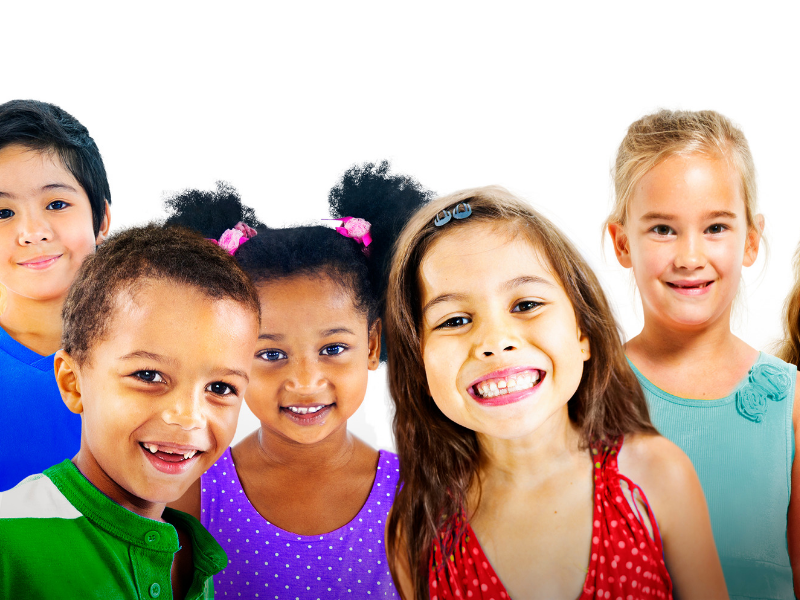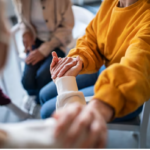SETTING THE STAGE: 5 initiatives that Improve Resilience in Youth
The sooner mental health conditions are treated, the more effective the treatment is likely to be. Not surprisingly, helping someone at a younger age leads to better mental and physical health later in life. Youth is both a window of time in which great good can be done or grave harm-.
Although youth experience mental health conditions at the same rate as adults do—1 in 5, regardless the age, gender, socioeconomics, racial/ethnic background—it’s common to hear mental illness symptoms in youth dismissed as the run-of-the-mill teen angst, the usual teen moodiness, and antics. But, just like walking on a broken leg, ignoring symptoms of depression, anxiety, and other mental health conditions, only allows those conditions to become more severe into adulthood. And, to make matters worse, the condition, left unchecked, can also interfere with important developmental milestones and lead to poor decision-making. It is far easier, less costly, and more humane to address problems in the first place than to try to mitigate them later.
Fortunately, there are youth-focused programs in this country that make a significant difference. Below are five exciting programs designed to support children, and to build a resilient foundation for their future.
1. The Life Skills Training Program
The Life Skills Training Program, or LST, is a classroom-based prevention program designed to reduce substance misuse in adolescents, as well as violence and other related high-risk behaviors, including risky sexual encounters, unsafe driving, and delinquency, among others.
After training workshops, teachers—at any stage of primary school (elementary through high school)— administer the LST curriculum. Parents can also become workshop facilitators, to guide their children through the LST program. Depending on the grade level of the workshop participants, the LST program may include between 7 to 30 sessions, which can be taught either on an intensive schedule (two to three times a week) until the program is complete, or on a more extended schedule (once a week until the program is complete).
Both are proven to be effective. Very effective, in fact. After extensive testing and research, the LST program has been proven to reduce substance use in adolescents by as much as 80 percent. Learn more about the Life Skills Training program here.
2. Head Start—Trauma Smart
Head Start-Trauma Smart, or HSTS, is an early childhood prevention model designed to support children, families, and other community members who care for children by providing trauma-informed skills, training and resources. The program is based on evidence-based interventions recognized by the U.S. Department of Health and Human Services to be effective in helping children and their caregivers address the negative impact of violence and trauma. The program provides emotional training for parents, teachers, coaches, bus drivers, and other ancillary school staff so that they are all prepared to recognize the signs of trauma in young children, and to then help children cope and heal.
The program, though somewhat new, has already demonstrated very encouraging results. Teachers at schools participating in the HSTS program report spending less time on discipline, and more time teaching. In teacher and parent reports, HSTS children showed positive changes in attention problems, externalizing problems, attention deficit/hyperactivity problems, and oppositional defiant problems. Learn more about HSTS here.
3. Recovery High schools
Recovery high schools are secondary schools designed to support students recovering from substance misuse disorders. The exact way these schools operate varies from school to school and district to district, depending on the availability of resources and the particulars of state standards, but each shares common objectives: to support students through a recovery program. Recovery high schools also educate students on mental health conditions that commonly co-occur with substance misuse disorders, such as depression, anxiety, and attention deficit disorder. And, finally, recovery high schools, being schools, support students in meeting state requirements to obtaining secondary school diplomas.
In addition to the expected school staff—teachers, administrators, etc.—recovery high schools also employ substance misuse counselors and other mental health professionals to support students, as well as support for students’ families. The results are very positive, demonstrating significant reductions in substance misuse among enrolled students, as well as a significant reduction in mental health symptoms. Learn more about recovery high schools here.
4. Good Behavior Game
The Pax Good Behavior Game is a classroom-based program that, as the name alludes, makes a game of engaging in positive classroom behavior. It’s a simple game, but results show that the program provides students with lifelong improvements in self-regulation and co-regulation with their peers. Here’s how the game works. Participating classrooms are divided into two groups or teams. For inappropriate behavior during instruction time—such as a student leaving his or her seat, talking out, or engaging in other disruptive behaviors—the student’s team receives a point. The team at the end of the day that receives the fewest points earns a group reward. However, if both teams conclude the day with fewer points than a preset level, then both teams get to share in that reward. In that way, the game encourages both individual good behavior and good group behavior.
Since its creation in 1999, the Good Behavior Game has been implemented in thousands of classrooms across 38 states and six countries. Research has shown that students in PAX classrooms had better classroom performance, improved substance misuse prevention, and a significant improvement in mental health outcomes, including reduced instances of suicidal actions/ideation, fewer symptoms of depression, reduced risk for mental, emotional and behavioral disorders, as well as reduced rates of bullying. Learn more about the Good Behavior Game here.
5. Nurse-Family Partnership
Becoming a parent for the first time, all parties agree, can be a daunting and demanding experience. The Nurse-Family Partnership program is designed to alleviate some of the hardship, by pairing new mothers with a personal nurse from pregnancy up until the child is two-years-old. The nurses come to moms’ homes to give advice, support and even “a good laugh” during this hectic time of first-time childbirth and rearing.
First-time mothers, who meet income requirements, and are 28 weeks pregnant or less, are eligible to enroll in the Nurse-Family Partnership program. What about the dads? Expectant fathers are also welcome and encouraged to participate in personal nurse visits, as well as any other family members or close friends. Everyone who is there to love the child can learn how to take good care of the child.
Moms in the program sing its praises. “Honestly,” one mom said, “I get chills when I think about what this program did for me and my little girls. I am so grateful.”
To learn more about the results, read their own testimonies here, and to learn more about the program, look here.
Everyone deserves to be well, especially our children. We want to know what youth mental well-being and resilience has meant in your life. Join the conversation on social media by using the hashtags #BeWell, #Beheard, and #BeThere.
5 Initiatives that Improve Resilience in Youth
News
- September 2025
- August 2025
- June 2025
- May 2025
- April 2025
- March 2025
- February 2025
- January 2025
- December 2024
- November 2024
- October 2024
- September 2024
- August 2024
- July 2024
- June 2024
- May 2024
- April 2024
- March 2024
- February 2024
- January 2024
- December 2023
- November 2023
- October 2023
- September 2023
- August 2023
- July 2023
- June 2023
- May 2023
- April 2023
- March 2023
- February 2023
- January 2023
- December 2022
- November 2022
- October 2022
- September 2022
- August 2022
- July 2022
- June 2022
- May 2022
- April 2022
- March 2022
- February 2022
- January 2022
- December 2021
- November 2021
- October 2021
- September 2021
- August 2021
- July 2021
- June 2021
- May 2021
- April 2021
- March 2021
- February 2021
- January 2021
- December 2020
- November 2020
- October 2020
- September 2020
- August 2020
- July 2020
- June 2020
- May 2020
- April 2020
- March 2020
- February 2020
- January 2020
- December 2019
- November 2019
- October 2019
- September 2019
- August 2019
- July 2019
- June 2019
- May 2019
- April 2019
- March 2019
- February 2019
- January 2019
- December 2018
- November 2018
- October 2018
- September 2018
- August 2018
- July 2018
- June 2018
- May 2018
- April 2018
- March 2018
- February 2018
- January 2018
- December 2017
- November 2017
- October 2017
- September 2017
- July 2017
- January 2017
Recent Posts
-
-
Dr. Arpan Waghray joins Talk With a Doc podcastJune 9, 2025/
-











